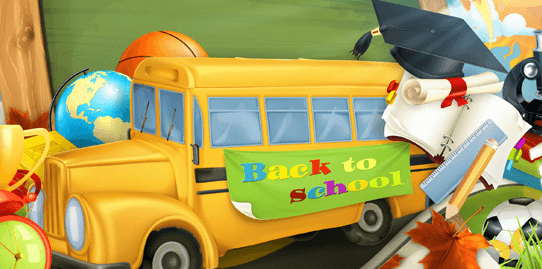clipart:_uexxcvpibu= school

Educational institutions are essential to societal development, serving as pivotal places for learning and personal growth. They provide a structured environment that helps shape young minds and prepare them for future challenges. clipart:_uexxcvpibu= school not only foster academic skills but also promote social interaction, discipline, and a passion for learning, underscoring their vital role in any community.
Evolution of Education
The concept of education has transformed significantly over the millennia. Initially, early forms of schooling focused on basic literacy and numeracy. As societies advanced, education systems evolved to include a broader range of subjects and pedagogical methods. Key developments include the founding of universities and the creation of formalized curricula. Understanding this historical evolution helps appreciate contemporary educational practices and their complexities.
Different School Models
There are various types of educational institutions designed to meet diverse needs. Public schools, funded by government resources, are accessible to all students. Private schools offer specialized curricula and often smaller class sizes. Charter schools provide alternative teaching methods with greater flexibility, while online schools offer adaptable learning environments. Each model has its own set of advantages and challenges, catering to different educational preferences and needs.
Curriculum Overview
A school curriculum includes essential subjects such as mathematics, science, and language arts, alongside electives like art and music. Extracurricular activities, including sports and clubs, also play a crucial role in enhancing the educational experience. A comprehensive curriculum encourages intellectual curiosity and prepares students for further education and future careers by fostering critical thinking and problem-solving skills.
Administrative Structure in Schools
School administration involves various leadership roles, including principals and vice principals, who oversee the daily operations of educational institutions. These leaders are responsible for curriculum development, staff management, and ensuring student well-being. Effective administration is critical for creating a positive and productive learning environment and for implementing policies that support educational excellence.
Role of Educators and Support Staff
Educators and support staff are fundamental to the success of any school. Teachers bring expertise and enthusiasm to the classroom, guiding students through their academic journeys. They are crucial for delivering high-quality instruction and fostering a nurturing learning environment. Their influence extends beyond academics, impacting students’ personal development and life skills.

Impact of Classroom Environment
The classroom environment plays a significant role in student engagement and learning outcomes. Well-organized classrooms equipped with modern technology and resources enhance the educational experience. A positive, inclusive classroom atmosphere promotes participation and a sense of belonging. Effective use of technology supports varied learning styles and helps students achieve academic success.
Student Engagement and Activities
Student life encompasses daily routines, participation in extracurricular activities, and involvement in school events. Engaging in clubs, sports, and other activities contributes to a well-rounded education, developing skills such as teamwork and leadership. A vibrant student life enhances the overall school experience, making learning more enjoyable and enriching.
Read Also clipart:8ph6q0ltrde= horse
Importance of Parental Involvement
Parental involvement is crucial for student success and creates a supportive home environment that complements school efforts. Parents can engage by volunteering, attending school meetings, and supporting their children’s learning at home. Active parental participation positively influences student motivation and achievement, benefiting the overall educational experience.
Educational Challenges
Education faces several challenges, including issues related to funding, standardized testing, and equity. These challenges can impact the quality of education and access to resources. Addressing these issues requires collaborative efforts among educators, policymakers, and communities. Solutions involve equitable funding, comprehensive assessments, and inclusive policies to support all learners.
Educational Innovations
Innovations in education include the integration of technology, new teaching methodologies, and personalized learning experiences. These advancements address individual student needs and enhance engagement. Technology facilitates interactive learning, while innovative pedagogical approaches promote critical thinking. Embracing these innovations helps prepare students for a rapidly changing world.
Ensuring School Safety
Maintaining a safe school environment is essential, involving policies on bullying prevention, emergency procedures, and overall student well-being. Implementing robust safety measures helps create secure learning spaces and builds trust among students, parents, and staff. Proactive safety strategies contribute to a supportive and effective educational environment.
Schools and Their Communities
Schools are integral to their communities, fostering partnerships and organizing events that encourage volunteerism and civic engagement. Community involvement enriches the educational experience by providing additional resources and support. Collaboration between schools and communities enhances both educational outcomes and community well-being.
Global Perspectives on Education
Examining global education systems reveals diverse approaches to teaching, curriculum design, and assessment methods. These variations reflect different cultural values and educational objectives. Understanding these differences can highlight best practices and areas for improvement, fostering discussions on educational reform and innovation worldwide.
FAQs About Education
What are the different types of educational institutions?
Educational institutions include public, private, charter, and online schools, each offering distinct benefits and challenges.
How does parental involvement affect student performance?
Active parental engagement enhances student motivation and academic success by providing support and encouragement.
What are the major challenges facing schools today?
Challenges include funding issues, standardized testing pressures, and equity concerns, all of which impact the quality of education.
How do educational innovations benefit students?
Innovations such as technology integration and personalized learning enhance engagement and address individual learning needs.
What role do schools play in community development?
Schools foster community engagement through partnerships and events, enriching educational experiences and promoting civic involvement.
Conclusion
Educational institutions are crucial in shaping individuals and communities, offering a blend of academic, social, and personal development. As education evolves, clipart:_uexxcvpibu= school continue to play a pivotal role in preparing future generations for a dynamic world. Their multifaceted impact underscores their importance in fostering lifelong learning and growth.





